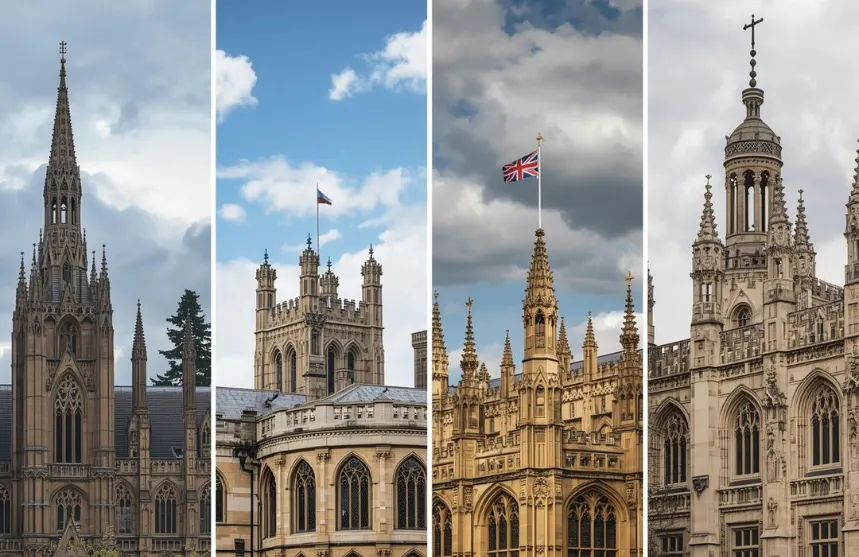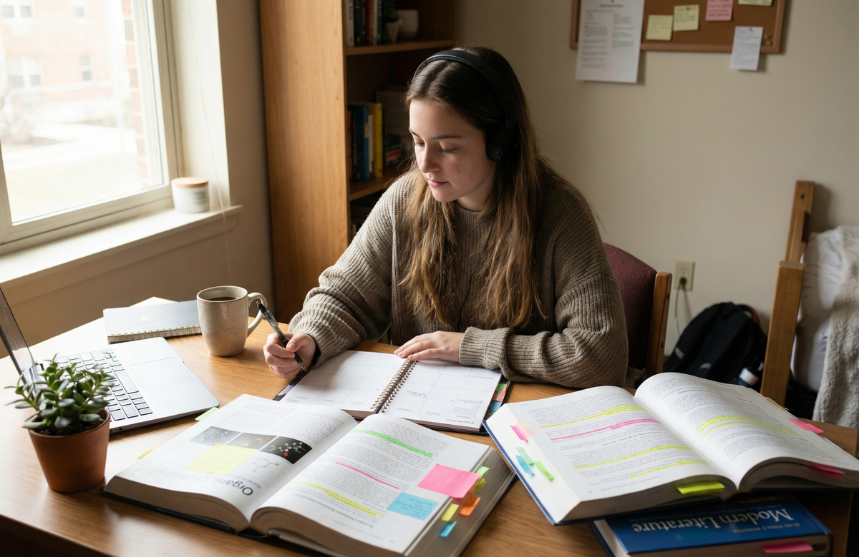Hotel Management Scope Overseas: Courses, Skills, Internships & Global Careers Explained
Cost of Studying in the UK: Smart Guides for Students

Let’s start with what matters the most, basically your investment. Studying in the UK is more than an academic pursuit, it’s an investment in a globally recognised education, a multicultural experience, and a future full of possibilities. But how much does it actually cost? What’s included in the “Cost of Studying in the UK”? How much should you budget for living expenses? And more importantly, how can you make it affordable without compromising on quality?
Whether you’re planning for undergraduate or postgraduate study, this blog cuts through the clutter and offers a clear, point-by-point breakdown of the total cost and how to make the most of every penny you spend.
Quick Overview: Cost Breakdown for International Students in the UK
Before diving deeper, here’s a crisp overview of the typical annual costs involved:
| Component | Estimated Range (GBP/year) |
|---|---|
| Tuition Fees (UG/PG) | £10,000 – £38,000 |
| Accommodation | £5,000 – £8,000 |
| Food & Groceries | £1,800 – £2,400 |
| Transport (Public + Rail) | £600 – £1,200 |
| Utility Bills & Internet | £1,200 – £1,500 |
| Study Materials & Supplies | £300 – £800 |
| Personal Expenses | £1,200 – £2,000 |
| Visa & Health Surcharge | £900 – £1,800 |
Total Cost (Annual Average): £21,000 – £55,000 (approx. ₹22 lakh to ₹60 lakh)
“Note: All prices mentioned are approximate values. Students should check official government websites or the respective university websites for exact figures.”
Why the UK Still Makes Financial Sense
Yes, the cost of Studying in the UK is high. But let’s break down why thousands of Indian students still choose it every year:
- Shorter Degrees: UK courses are often one year shorter than their US or Australian counterparts. That’s one full year of savings on tuition, accommodation, and living costs.
- Higher ROI: With globally recognised degrees and strong post-study work options (Graduate Route Visa), your employability skyrockets.
- Part-time Work & Internships: Students can work up to 20 hours/week during term and full-time during breaks. With an average pay of £10–£15/hour, that’s up to £1,200/month.
- Scholarships & Grants: There’s no shortage of UK Scholarships for International Students. From government-backed awards to merit-based tuition waivers, many options help cut the cost significantly.
- Healthcare Access: NHS healthcare surcharge covers you for most health needs, something many countries don’t offer international students.
Understanding Cost of Living in the UK: What’s Normal, What’s Not?
The “Study in UK – Cost of Living” is a trending query because it varies drastically depending on location, lifestyle, and accommodation type. Here’s how to make sense of it:
1. City-Wise Cost Distribution
Your cost of living largely depends on where you study:
| City Category | Examples | Avg. Monthly Living Cost |
|---|---|---|
| High Cost | London | £1,200 – £1,500 |
| Moderate Cost | Manchester, Edinburgh | £900 – £1,100 |
| Low Cost | Nottingham, Belfast | £700 – £900 |
Insider Tip: If you’re not particular about studying in London, consider smaller cities for the same degree at half the living cost.
2. Accommodation Choices
- University Halls: £400 – £800/month
- Shared Flats/Private Rentals: £350 – £700/month
- Homestays (rare but possible): £500 – £900/month
3. Food & Essentials
- Weekly grocery bill: £30–£50
- Eating out (occasionally): £10–£15/meal
- Cooking at home saves 40–60% of monthly food expenses.
4. Transport Costs
- A monthly public transport pass: £50–£100 depending on city.
- Railcards (16–25): Save 30% on train travel.
Value Hacks to Reduce Your UK Cost Burden
You don’t just Study Abroad to spend, you study abroad to grow. And financial maturity starts before the flight takes off.
- Get a Student Oyster Card (London) – 30% off travel.
- Use Unidays & Student Beans – Discounts on clothes, tech, food.
- Open a Student Bank Account – With cashback offers and fee waivers.
- Track spending with budgeting apps –Apps like Revolut, Monzo or Emma keep you aware and in control.
- Apply for early-bird flight deals – Booking at least 3 months prior saves 20–30% on airfare.
- Cook with flatmates – Shared cooking reduces expenses and builds community.
Actual ROI: What You’re Getting for the Money
When analysing the cost of Studying in the UK, always weigh it against the value you gain:
- Global recognition of your degree in over 150 countries.
- Faster graduation-UK bachelor’s degrees are 3 years, and master’s usually 1.
- High employability with UK-based companies and multinational firms in India.
- Post-study visa options allow you to work for 2 years (Graduate Route).
- Immersive networks, you’re studying alongside students from 100+ nationalities.
Money-Saving Scholarships You Shouldn’t Miss
Even though we’re not naming specific universities, scholarship strategies remain universally relevant:
- Merit-based Scholarships: Awarded based on academic performance or exceptional extracurriculars.
- Need-based Bursaries: For students demonstrating financial need.
- Government Scholarships: Chevening, GREAT Scholarships, and Commonwealth fellowships support Indian applicants.
- Early Application Benefits: Many institutions offer tuition discounts for early applicants.
Real Cost vs Hidden Cost: What No One Tells You
Some costs aren’t printed on brochures:
- Visa Rejections: A poorly prepared application can cost £490 in visa fees, non-refundable.
- Course Changes or Extensions: Changing courses may cost extra, both in time and money.
- Mental Health Needs: Not all therapy or support services are free, even with NHS.
- Tech & Gear: Laptops, headsets, course software could add up to £500+ depending on programme.
- Unpaid Internships: Prestigious, but they increase living costs without adding to income.
At MetaApply, we guide you around these pitfalls, planning for the visible and invisible costs so you’re never caught off guard.
Why Cost Planning is the Most Critical Step in Your Study Abroad Journey
Many students begin dreaming of studying in the UK by looking at courses. But smart students start with the numbers.
- What’s the all-inclusive cost?
- Can I afford the city I’ve chosen?
- Should I go for a more affordable city and get the same quality education?
- Can I apply for a part-time job or scholarship from Day 1?
- How soon can I recover my investment?
These are the real questions. And with MetaApply IE, you don’t just get answers, you get solutions. You can check out the budgets on MetaApply IE calculators like Visa Success calculator, Loan Calculator and Abroad Budget Calculator.
At MetaApply IE, we offer expert counselling to help you find the right course, college, and destination. Our team supports you throughout the process, from application submission to securing financial aid and preparing for visa interviews. We ensure that every detail is taken care of, making your journey smooth and hassle-free. We also have TestPrep, Career Counselling. Our expert counsellors take care of all your study abroad needs, from guidance to growth.
Frequently Asked Questions
The annual cost ranges between ₹21,00,000 to ₹55,00,000, including tuition, accommodation, living expenses, and visa charges. This is an estimate amount kindly check official websites for actual figure.
Depending on the city, the monthly cost can range from ₹73,500 to ₹1,57,500. London is the costliest; smaller cities are more affordable.
Yes. By choosing a one-year PG course, applying for scholarships, and opting for a budget-friendly city, you can complete your studies within ₹22–₹28 lakh.


















































